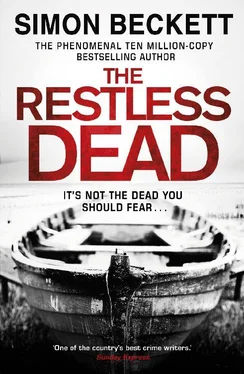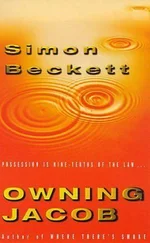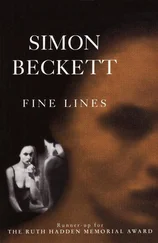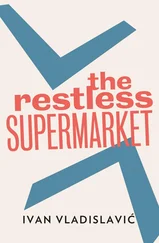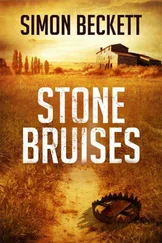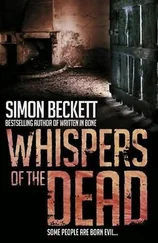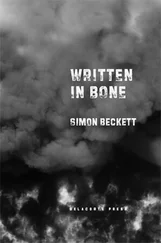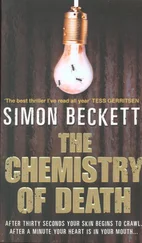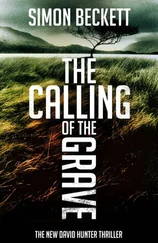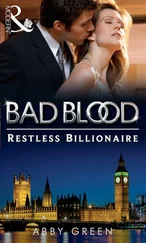I was going to say it didn’t matter. But the more rational part of me recognized that I couldn’t afford pride just now.
‘There’s a problem with my immune system,’ I admitted. ‘What sort of problem?’
‘Nothing contagious,’ I told her, guessing what she was thinking. I didn’t want to have to explain, but I couldn’t see a way round it. Oh, hell. ‘I don’t have a spleen.’
‘Shit.’ She sounded concerned as well as shocked. ‘Shouldn’t you see a doctor?’
‘I am a doctor. I’m on antibiotics. I just need somewhere to rest up.’
That earned another glance, dubious this time. ‘I thought you told Andrew you were a forensic expert?’
‘I am.’ I wished I’d never started this. ‘I used to be a GP.’
‘Not a very good one. What the hell were you thinking, sitting around in wet clothes? Why didn’t you say something?’
In hindsight it wasn’t one of my better ideas, but I didn’t have the energy to argue. ‘I’ll be fine,’ I repeated weakly.
Trask’s wife gave me a look that told me what she thought of that. ‘I hope so. We’re there now.’
She bumped the Land Rover on to a cinder-covered parking area and put the handbrake on. The boathouse was a small stone building that jutted out from the bank of the creek. Its lower half stood in the water, stone walls stained with a line to show where the high tide came. The top half was a single storey built on a level with the creek bank. Two small windows were on either side of a door, like a child’s drawing of a house.
Trask’s wife went to it, balancing the box against the wall while she went through a large ring of jangling keys.
‘Come on, where are you?’ she muttered to herself.
Finally, she found the right key and nudged open the door with her hip. The inside was a surprise. There were no interior walls, just a single large room that had been decked out like a studio apartment. It was much brighter than I’d have thought from outside. The unplastered stone walls had been painted white, and light spilled through a large arched window facing out on to the creek. A small kitchen area had been built at one side, while a sofa and armchair stood either side of a wood-burning stove at the other. The furniture was sixties-style Scandinavian, plain lines and muted colours, and a deep-red rug covered most of the varnished floorboards.
Everything looked new and unused, and a faint smell of fresh paint still hung in the air. Small as it was, the place was bright and airy, the sort of thing that could feature in the pages of a glossy travel magazine. Trask had said his wife had renovated it, and she’d done a good job.
She dumped the box down on the kitchen worktop. ‘We weren’t expecting anyone to be staying here till the season starts,’ she said, going round briskly flicking switches. Warm air began to waft from a heater mounted on one wall. ‘It’s not finished but you should be comfortable enough. The woodburner works if you need it. No wi-fi or TV, but you can generally pick up a mobile signal. Oh, and the bathroom’s in there.’
She gestured towards a door in a small cubicle tucked away in one corner. I nodded, but I’d noticed something was missing. ‘Where’s the bed?’
I was hoping I wouldn’t have to sleep on the small sofa, but Trask’s wife went over to a section of wall panelled with rough-hewn planks. Taking hold of a leather strap, she heaved and the entire panel swung out to reveal a pull-down bed.
‘I’ve brought bedding and towels in the car,’ she said unenthusiastically. ‘You might as well take it easy while I get everything made up.’
I didn’t argue. An armchair was next to the arched window. I sank into it, light-headed and shivering despite the warm air from the heater. I was feeling feverish now, my whole body aching and weak. Outside, I saw that the water level in the creek looked much lower. For as far as I could see there were only fields, dunes and water. I wondered if I’d done the right thing, if I shouldn’t have just found a hospital. If my condition deteriorated it would take a long time for any help to get out here. I’d be on my own.
But I was used to that.
I got to my feet when Trask’s wife came back, but she brusquely waved aside my offer of help.
‘It’s OK.’ She actually gave me a smile. A strained one, but still a smile. ‘You should sit down before you fall down.’
She had a point. It didn’t take her long to make up the bed. That done, she straightened and looked round.
‘OK, I think that’s everything. I’ve left tea, coffee, some soup and a few other things, so you shouldn’t starve. Do you need anything else?’
‘No thanks.’ I just wanted her to leave so I could collapse onto the bed.
‘I’ll take your boots with me. We’ve got a drying room we can put them in. Someone can drop them off for you tomorrow.’ She regarded me uncertainly. ‘Are you sure you’re going to be OK?’
‘I’ll be fine.’
‘I’ll write you my number down in case... Well, just in case.’ She scribbled it down on a pad from one of the kitchen drawers and handed it to me. ‘Is there anyone I can call to let them know? Your wife or someone?’
‘No. But thanks anyway.’
She still looked unhappy as she went to the door. She reached out to open it then paused. ‘Look, I’m sorry I gave you a hard time earlier. It’s been... a strange day. Emotions have been running a bit high. For all of us.’
If I hadn’t felt so wasted I’d have wondered what that meant. ‘Don’t worry about it. I appreciate what you and your husband have done.’
‘My husband?’ She looked puzzled, then her face blanked as she understood. ‘You mean Andrew?’
Seeing her expression, I realized my mistake. ‘I’m sorry, I thought...’
‘Andrew’s not my husband. He’s my brother-in-law.’
Colour had risen to her cheeks. She went to the door while I floundered for something to say.
‘Call if you need anything,’ she said without looking at me, and went out.
The door closed behind her. I looked down at the notepad in my hand, already knowing what I’d see. In looping script above the phone number she’d written her name.
Rachel Derby.
The call of seagulls woke me next morning. Their raucous cries dragged me from a deep sleep, so loud it sounded as though they were in the room with me. There was a gentle light against my eyelids, which was strange because I slept with the curtains closed. I tried to ignore both, loath to rouse myself, but then opened my eyes. I stared up at the unfamiliar pointed ceiling, with its white-painted roof beams, with no idea where I was. Then I remembered.
Still alive, then.
I lay there for a while, comfortable and warm under the duvet. I felt no great urgency to move as I cautiously took stock of how I felt. Better, I decided. Much better.
And hungry.
That was a good sign. I’d hardly eaten anything the night before. After Rachel Derby had left I’d briefly entertained the idea of a shower, but didn’t feel I had the strength. I took a couple of paracetamol to bring down my temperature, then opened a can of tomato soup, putting it to warm on the electric hob while I got out of the still-wet trousers. I ate what I could, shaking so much that the spoon rattled against the bowl.
I’d no appetite, though. Leaving most of the soup unfinished, I crawled into bed and pulled the duvet over me. I ached all over, and as fits of shuddering racked through me I wondered again if, in a day already littered with bad decisions, coming here rather than a hospital might be the worst one yet. For a few hours I’d dozed feverishly, but at some point I’d sunk into a proper sleep.
Now, looking at my watch, I saw it was after ten. I stared at the wooden beams above me, listening to the scrabble of birds’ feet on the roof. No wonder it sounded as though they were in here with me: they practically were. There was another noise as well, one that it took me longer to identify. I was in the upper floor of what had been a boathouse, with the dock below. The tide must be in, and the sound I could hear was the gentle slap of water from under the floorboards.
Читать дальше
